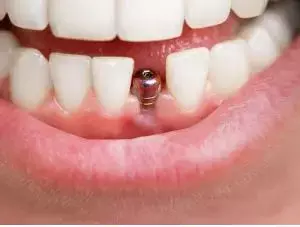- Home
- Medical news & Guidelines
- Anesthesiology
- Cardiology and CTVS
- Critical Care
- Dentistry
- Dermatology
- Diabetes and Endocrinology
- ENT
- Gastroenterology
- Medicine
- Nephrology
- Neurology
- Obstretics-Gynaecology
- Oncology
- Ophthalmology
- Orthopaedics
- Pediatrics-Neonatology
- Psychiatry
- Pulmonology
- Radiology
- Surgery
- Urology
- Laboratory Medicine
- Diet
- Nursing
- Paramedical
- Physiotherapy
- Health news
- Fact Check
- Bone Health Fact Check
- Brain Health Fact Check
- Cancer Related Fact Check
- Child Care Fact Check
- Dental and oral health fact check
- Diabetes and metabolic health fact check
- Diet and Nutrition Fact Check
- Eye and ENT Care Fact Check
- Fitness fact check
- Gut health fact check
- Heart health fact check
- Kidney health fact check
- Medical education fact check
- Men's health fact check
- Respiratory fact check
- Skin and hair care fact check
- Vaccine and Immunization fact check
- Women's health fact check
- AYUSH
- State News
- Andaman and Nicobar Islands
- Andhra Pradesh
- Arunachal Pradesh
- Assam
- Bihar
- Chandigarh
- Chattisgarh
- Dadra and Nagar Haveli
- Daman and Diu
- Delhi
- Goa
- Gujarat
- Haryana
- Himachal Pradesh
- Jammu & Kashmir
- Jharkhand
- Karnataka
- Kerala
- Ladakh
- Lakshadweep
- Madhya Pradesh
- Maharashtra
- Manipur
- Meghalaya
- Mizoram
- Nagaland
- Odisha
- Puducherry
- Punjab
- Rajasthan
- Sikkim
- Tamil Nadu
- Telangana
- Tripura
- Uttar Pradesh
- Uttrakhand
- West Bengal
- Medical Education
- Industry
Diabetes impairs dental implant prognosis,finds study

A statistically significant difference was noted in success rates of dental implants among patients with diabetes mellitus when compared with non diabetics. The research also highlighted that that as HbA1c level increases, the bleeding of the tissues surrounding the implant also increases, creating complications peri and post operatively. The paper has been published in Acta Odontologica Scandinavica.
Diabetes mellitus is closely related to oral health, especially periodontal health , and has long been known to be a risk factor for implant failure due to susceptibility to infection, impaired healing and other complications .Although diabetes mellitus has always been considered a relative contraindication to treatment with dental implants, dental implant restoration has been increasingly favoured by the majority of patients with tooth loss due to its advantages of reduced damage to adjacent teeth and reduced impact on alveolar bone compared to fixed bridge treatment and removable restoration, respectively.
The aim of the study was to explore the possible association between diabetes mellitus and dental implant complications. For the study design, a systematic literature review was conducted to answer the following PICO(Participants, Intervention, Comparison, and Outcome) question: Is there association between diabetes mellitus and dental implant complications?
Two independent searchers performed a literature search of the PubMed/MEDLINE, Web of Science, Cochrane Library and EMBASE databases for studies published until February 2020, focussing on studies including continuous outcomes, marginal bone loss(primary outcome), probing depth, and bleeding upon probing (secondary outcomes).
Results revealed some key facts.
- A final total of 10 published studies were included in this systematic review.
- There were statistically significant differences between the groups with regard to marginal bone loss(p < .00001), probing depth (p < .00001) and bleeding around dental implants (p < .00001), and subjects without diabetes had lower complication rates. Additionally, in the subgroup analysis performed with loading time and HbA1c levels, a more evident association was found in immediate loading for probing depth. Moreover, the analysis results of bleeding around dental implants suggested that as HbA1c level increases, the bleeding of the tissues surrounding the implant will also increase.
- With regard to dental implant complications, there were statistically significant differences favouring patients without diabetes mellitus.
"In conclusion, despite the limitations of this review,implants are feasible for patients with diabetes. There is evidence, however, that these patients are more likely to have clinical complications than patients without diabetes. This evidence suggests that dental implant eligibility criteria for patients with diabetes should be more strict, that local and systemic factors should be controlled for after surgery, and that long-term follow-up and evaluations should performed."the team concluded.
For full article follow the link: Xue Jiang, Yanlin Zhu, Zhaoying Liu, Zilu Tian & Song Zhu (2020): Association between diabetes and dental implant complications: a systematic review and meta-analysis, Acta Odontologica Scandinavica, DOI: 10.1080/00016357.2020.1761031
Source: Acta Odontologica Scandinavica
Dr Satabdi Saha (BDS, MDS) is a practicing pediatric dentist with a keen interest in new medical researches and updates. She has completed her BDS from North Bengal Dental College ,Darjeeling. Then she went on to secure an ALL INDIA NEET PG rank and completed her MDS from the first dental college in the country – Dr R. Ahmed Dental College and Hospital. She is currently attached to The Marwari Relief Society Hospital as a consultant along with private practice of 2 years. She has published scientific papers in national and international journals. Her strong passion of sharing knowledge with the medical fraternity has motivated her to be a part of Medical Dialogues.
Dr Kamal Kant Kohli-MBBS, DTCD- a chest specialist with more than 30 years of practice and a flair for writing clinical articles, Dr Kamal Kant Kohli joined Medical Dialogues as a Chief Editor of Medical News. Besides writing articles, as an editor, he proofreads and verifies all the medical content published on Medical Dialogues including those coming from journals, studies,medical conferences,guidelines etc. Email: drkohli@medicaldialogues.in. Contact no. 011-43720751


